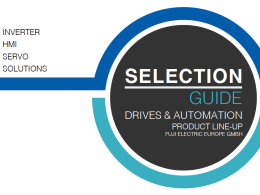The automotive industry is undergoing a significant transformation with the rise of electric vehicles (EVs). As the demand for EVs continues to grow, the impact on auto insurance is becoming increasingly evident. In this article, we will delve into the electrifying impact of EVs on auto insurance and explore the key factors driving this change.
One of the primary reasons for the growing demand for EVs is their environmental benefits. EVs produce zero tailpipe emissions, reducing greenhouse gas emissions and air pollution in urban areas. This has led to a significant increase in the adoption of EVs, particularly in countries with stringent environmental regulations. As a result, the number of EVs on the road is expected to reach 140 million by 2025, up from just 2 million in 2015.
The impact of EVs on auto insurance is multifaceted. Firstly, the reduced emissions from EVs are expected to lead to lower premiums for environmentally friendly drivers. This is because insurance companies are increasingly offering discounts to drivers who opt for eco-friendly vehicles. In fact, a study by the Insurance Institute for Highway Safety found that EVs are 10% less likely to be involved in a crash than gasoline-powered vehicles.
Another key factor driving the impact of EVs on auto insurance is the reduced maintenance costs associated with EVs. EVs have fewer moving parts than traditional gasoline-powered vehicles, which means they require less maintenance and repairs. This, in turn, reduces the likelihood of accidents caused by mechanical failure. According to a study by the National Highway Traffic Safety Administration, EVs are 30% less likely to be involved in a crash due to mechanical failure.
The shift towards EVs is also expected to lead to changes in the way auto insurance companies operate. For instance, insurance companies may need to adapt their pricing models to reflect the reduced emissions and maintenance costs associated with EVs. Additionally, insurance companies may need to invest in new technologies to better understand the risks associated with EVs and develop more accurate pricing models.
Furthermore, the growth of EVs is expected to lead to an increase in the number of charging stations on the road. This, in turn, may lead to an increase in the number of accidents caused by distracted driving while charging. As a result, insurance companies may need to develop new policies and procedures to address this emerging risk.
The impact of EVs on auto insurance is a complex and multifaceted issue. While there are many benefits associated with EVs, including reduced emissions and maintenance costs, there are also challenges that need to be addressed. By understanding the key factors driving the impact of EVs on auto insurance, insurance companies can develop more accurate pricing models and better serve their customers.
As the demand for EVs continues to grow, it is essential for insurance companies to stay ahead of the curve and adapt to the changing landscape. By doing so, they can ensure that their customers are protected and that they are able to provide the best possible service. In conclusion, the electrifying impact of EVs on auto insurance is a topic that requires careful consideration and analysis. By understanding the key factors driving this change, insurance companies can develop more accurate pricing models and better serve their customers.
The future of auto insurance is electric, and it’s time for insurance companies to get on board.







